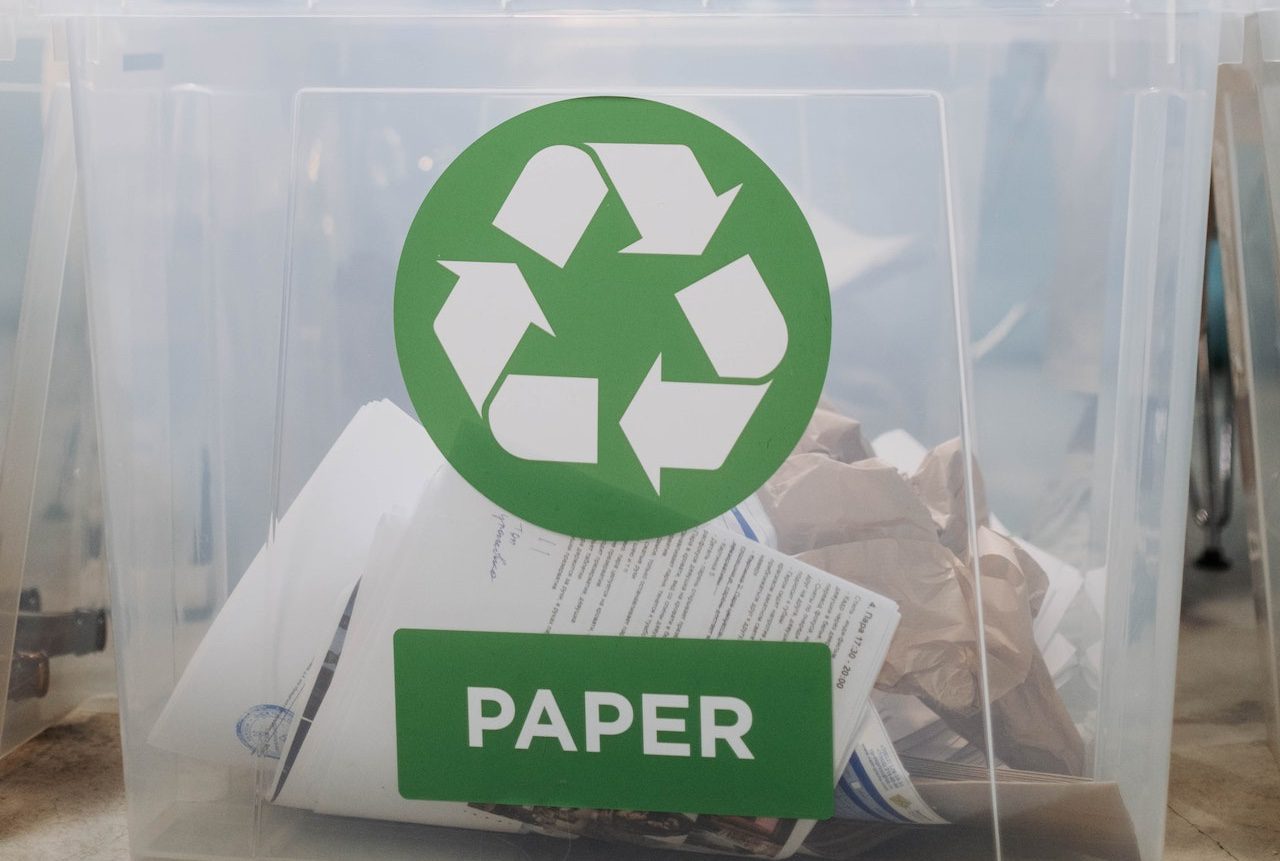As a business, recycling results in numerous benefits. From financial gains to sustainable efforts admired, businesses can not only cut their carbon footprint but also save money in the process.
Every business, big or small, generates waste. But have you ever paused to think about how this business waste can impact your bottom line, the environment, and society? By integrating a recycling program into your operations, the benefits can be profound.
Let’s dive into how recycling can influence businesses.
How Recycling Can Affect A Business: 8 Advantages
Saving Business Money
One immediate business benefit of recycling is the potential for cost savings. When you reduce waste, you inherently reduce the costs associated with waste management. Not only does this mean fewer collections, but there’s also the considerable saving from avoiding landfill tax.
As landfill spaces become more limited, the cost of disposing of waste traditionally can surge. Conversely, recycling often costs less than traditional waste disposal, keeping business money in the pocket.
Positive Impact on Production Processes
Recycling is not just about managing waste. It also directly impacts production processes. When a business opts for recycled materials instead of raw materials, it’s often more cost-effective. Using recycled materials can often cut costs, as they may be cheaper than raw materials. Plus, production processes that use recycled inputs tend to consume less energy, further magnifying the positive impact on the bottom line.
Conserving Natural Resources
Natural resources are finite. Every time a business uses recycled materials, it reduces the need to extract and process raw materials. This not only conserves these invaluable resources but also means less energy is used, which ties back to reducing greenhouse gas emissions.
Reducing Greenhouse Gas Emissions
Speaking of greenhouse gas, did you know that recycling can significantly reduce emissions? Production processes that rely on recycled materials often release fewer greenhouse gases than those using raw materials. By mitigating these emissions, businesses play a crucial role in the fight against global warming.
Demonstrating Social Responsibility
Today’s consumers are more conscious than ever about the impact businesses have on the environment. Implementing a recycling program showcases a company’s commitment to social responsibility. By prioritising the environment, businesses can strengthen their reputation, build trust with customers, and even tap into new market segments that value sustainable practices.
Reducing the Impact on the Environment
Every piece of recyclable waste that ends up in landfills is a missed opportunity. Landfills contribute significantly to global warming and harm our ecosystems. When businesses recycle, they directly reduce their impact on the environment.
Innovation & Growth
The benefit of recycling goes beyond the obvious. For instance, companies that adopt recycling often find themselves innovating in unexpected ways. This can lead to the development of new products, services, or even entirely new business models centered around sustainability.
Contributing to a Larger Movement
Lastly, by embracing recycling, businesses become part of a larger movement aiming to combat climate change and ensure a sustainable future. It’s not just about saving energy or reducing the amount of waste; it’s about creating a world where resources are used wisely and efficiently.
Start Recycling Your Commercial Waste
Recycling offers a myriad of benefits for businesses. From financial savings to enhancing a brand’s reputation, the reasons to integrate a recycling program are compelling. More than just a trend or a buzzword, recycling is an essential step towards building sustainable and responsible businesses.
If you are looking for commercial recycling services to rake in these benefits, get in touch with our team today. We provide collection and recycling services for business waste, along with sustainable skip hire. All of the contents of our skips will be taken to recycling facilities for repurposing.




